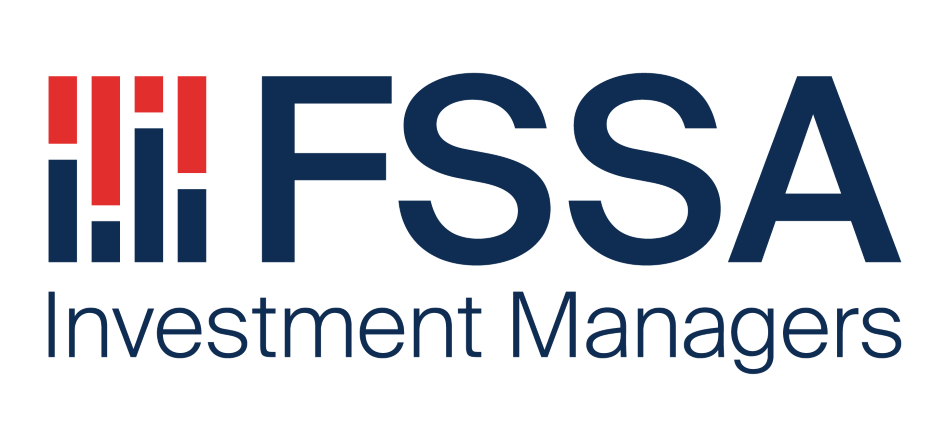Emerging markets have long been understood as geographies of uncertainty.
Political turmoil, currency fluctuations, and poor governance are common themes amongst headlines about emerging markets investing. It is in the context of these hazards that, in our decades of allocating clients’ capital in this universe of companies, we have looked to find high-quality family owners who act as stewards of businesses over generations, protecting and growing sound franchises that thrive despite the uncertainties that surround them.
The attraction of these stewards, who have in some cases been able to preserve multi-generational legacies, is the time horizons that they bring with them. These multi-generational family owners build business cultures that place weight on institutional memories, patience, and the ability to take decisions that might bring short-term pain but bear fruit over decades.
To us, these are some of the best run companies in the world.
Resisting short-term pressures for long-term gains
The marriage between long-term thinking and focus on constant operational excellence is exemplified in the culture at Raia Drogasil, the largest pharmacy chain in Brazil. The company was created through the merger of two family-owned pharmacy chains – Droga Raia and Drogasil – with the founding families continuing to control approximately 35% of the business today. Now, with the fourth generation involved in the business, the two families together have more than 200 years of institutional memory preserved and passed down from generation to generation.
The long-termism that this ownership structure produces has helped Raia Drogasil outlast the aggressive tactics of shorter-term competitors, who may come with the advantages of deep pockets over the span of a few quarters but are unable to match Raia Drogasil’s execution over years. Many of these competitors were focused on speed and quantity of growth, trying to gain market share quickly. Raia’s long history of sound execution, as well as the deep scars they bear in their institutional memory around carrying a leveraged balance sheet, ensured that they approached these short-term pressures with conservatism. Rather than falling into the trap of competing on price, the managers at Raia remained focused on quality of growth – they remained true to the recipe that had served them well for a century, rather than sacrificing their conservatism to match the risk appetites of others. While this approach meant that the company faced some pain in the form of slower market share gains over the course of a few quarters, it ensured that when competition remained unprofitable or put their balance sheets in jeopardy over the ensuing years, Raia Drogasil remained at the ready to reap the fruits and take back their market share.
Today, Raia Drogasil remains the clear market leader in Brazil, steadily gaining in strength at the expense of their competition.
In a world where cheap capital is able to fund such aggressive competition, we believe having a patient steward at the helm, with a century-long history and an eye on running the business for the next generation, is a tangible advantage. In our experience, it allows the business to withstand these short-term competitive pressures over the span of a few quarters, only to emerge stronger at the other end.
Patience and perseverance reap rewards
We see these traits of long-termism and focus manifesting themselves in additional positive ways at some other family-owned companies. Marico, an Indian consumer goods company founded and controlled by the Mariwala family, has its foundations in consistently investing behind adjacent legs of growth in new segments and new geographies.
Growing out of his family’s oil trading business, Harsh Mariwala sought to build a higher-margin, direct-to-consumer company. Through the 1970s he spent time laying the groundwork of the business, investing in distribution, the brand and – perhaps most importantly – the culture of the company. Starting completely from scratch, these investments paid off in creating rapid growth for Marico’s hair oil products through the 1990s. Marico, however, was still a small fish operating in a big pond, with larger, competent competitors around them. It was at this point in their journey when their largest competitor, Hindustan Unilever, tried to acquire the business. However, Mariwala’s unwavering focus and commitment to building something for the long term led him to reject the offer and continue consistently investing behind Marico. It was this steady reinvestment that finally culminated in Marico becoming the dominant player in hair oils in the country by the mid-2000s and, as fate would have it, Hindustan Unilever choosing to sell their hair oils business to the once fledgling challenger.
Another reiteration of this same patience and perseverance is the manner in which Marico has expanded beyond their home market. Entering Bangladesh in 1999, the company was a complete newcomer in a market dominated by local brands. They chose to make losses in their first five years, investing in brand promotion and creating a resilient distribution network. Focusing on growing volumes and creating brand loyalty in those early years now leaves them in the position of being the market leader in Bangladesh with profitability even higher than in their Indian business.
Finding the right stewards
Not every founding family is made equal of course, and for every one steward we like, there are many others we may think of less favourably.
However, the actions of the family stewards behind Raia Drogasil and Marico are, to us, evidence that their ownership, and the long-term mindset and behaviour it engenders, are competitive advantages in building businesses across geographies. These companies have prospered despite regime changes or economic booms and busts, and have built a robust runway for growth ahead. We remain excited about these stewards and the advantages they can bring across emerging markets.
Certain statements, estimates, and projections in this document may be forward-looking statements. These forward-looking statements are based upon Stewart Investors’ current assumptions and beliefs, in light of currently available information, but involve known and unknown risks and uncertainties. Actual actions or results may differ materially from those discussed. Readers are cautioned not to place undue reliance on these forward-looking statements. There is no certainty that current conditions will last, and Stewart Investors undertakes no obligation to correct, revise or update information herein, whether as a result of new information, future events or otherwise.
For illustrative purposes only. Reference to the names of each company mentioned in this communication is merely for explaining the investment strategy and should not be construed as investment advice or investment recommendation of those companies. Companies mentioned herein may or may not form part of the holdings of Stewart Investors.
Important Information
This material has been prepared and issued by First Sentier Investors (Australia) IM Ltd (ABN 89 114 194 311, AFSL 289017) (Author). The Author forms part of First Sentier Investors, a global asset management business. First Sentier Investors is ultimately owned by Mitsubishi UFJ Financial Group, Inc (MUFG), a global financial group. A copy of the Financial Services Guide for the Author is available from First Sentier Investors on its website.
This material contains general information only. It is not intended to provide you with financial product advice and does not take into account your objectives, financial situation or needs. Before making an investment decision you should consider, with a financial advisor, whether this information is appropriate in light of your investment needs, objectives and financial situation. Any opinions expressed in this material are the opinions of the Author only and are subject to change without notice. Such opinions are not a recommendation to hold, purchase or sell a particular financial product and may not include all of the information needed to make an investment decision in relation to such a financial product.
To the extent permitted by law, no liability is accepted by MUFG, the Author nor their affiliates for any loss or damage as a result of any reliance on this material. This material contains, or is based upon, information that the Author believes to be accurate and reliable, however neither the Author, MUFG, nor their respective affiliates offer any warranty that it contains no factual errors. No part of this material may be reproduced or transmitted in any form or by any means without the prior written consent of the Author.
Get the right experience for you
Your location :  Australia
Australia
Australia & NZ
-
 Australia
Australia -
 New Zealand
New Zealand
Asia
-
 Hong Kong (English)
Hong Kong (English) -
 Hong Kong (Chinese)
Hong Kong (Chinese) -
 Singapore
Singapore -
 Japan
Japan























 United Kingdom
United Kingdom 